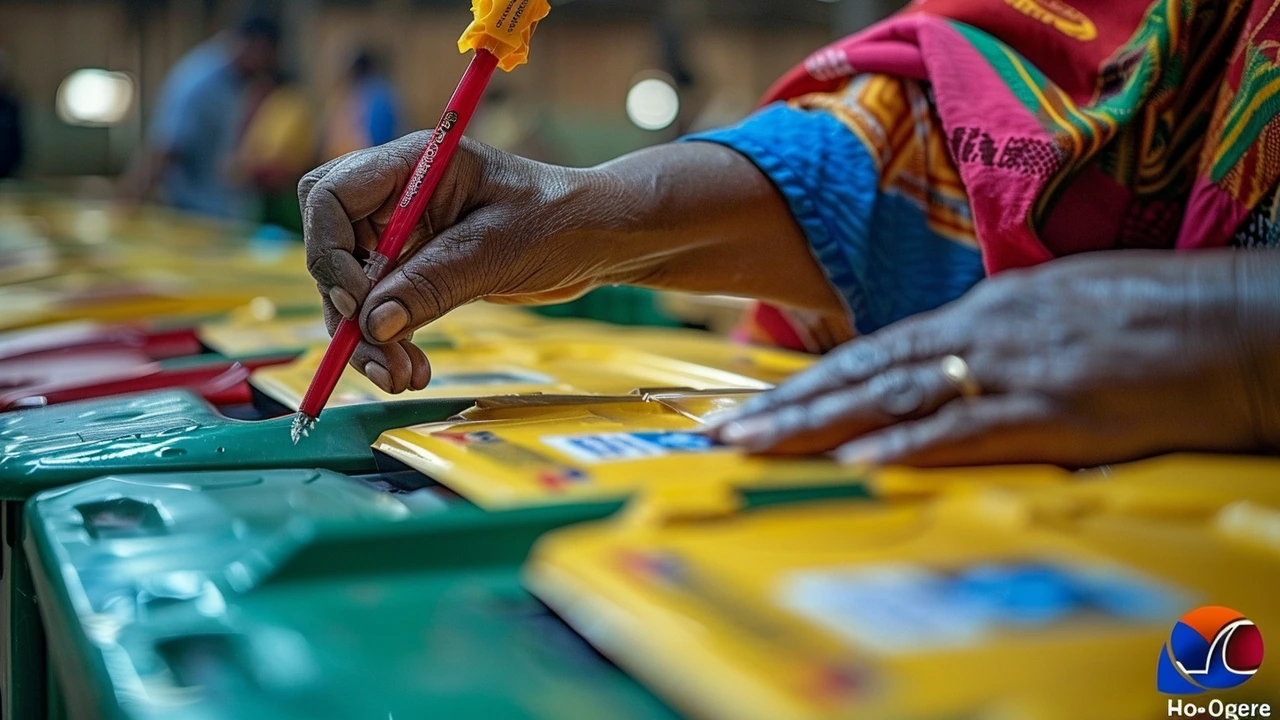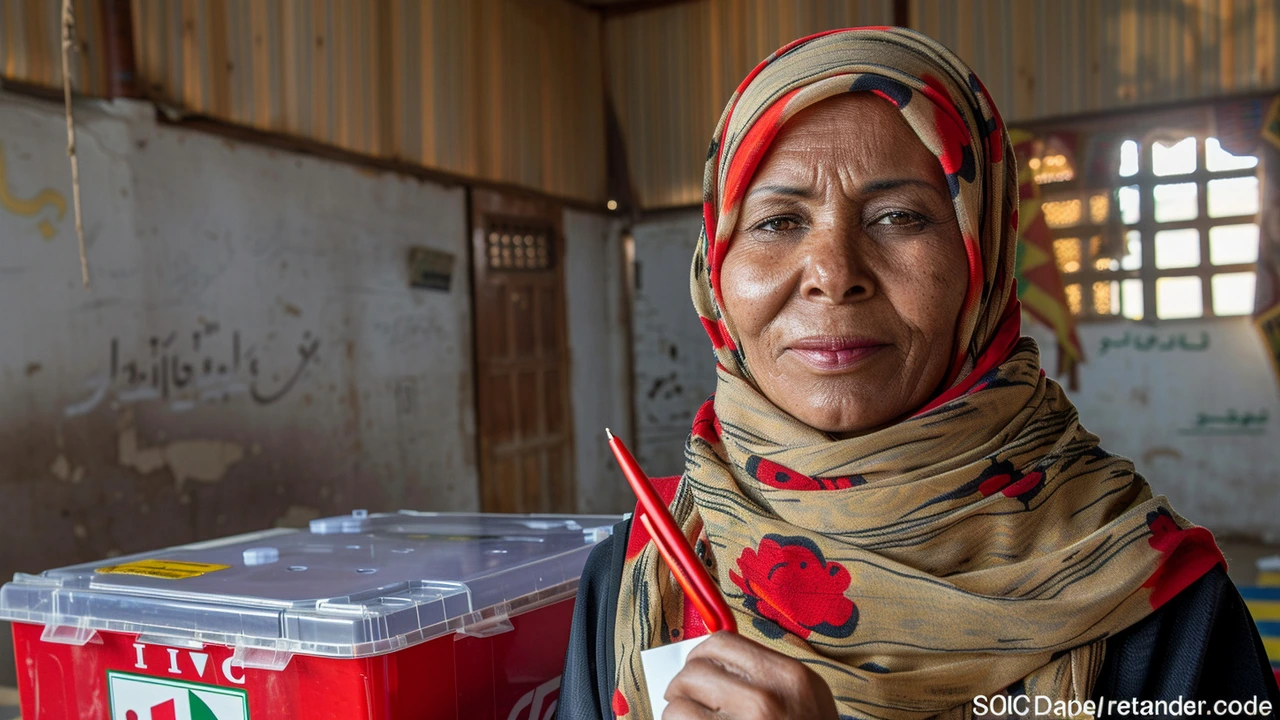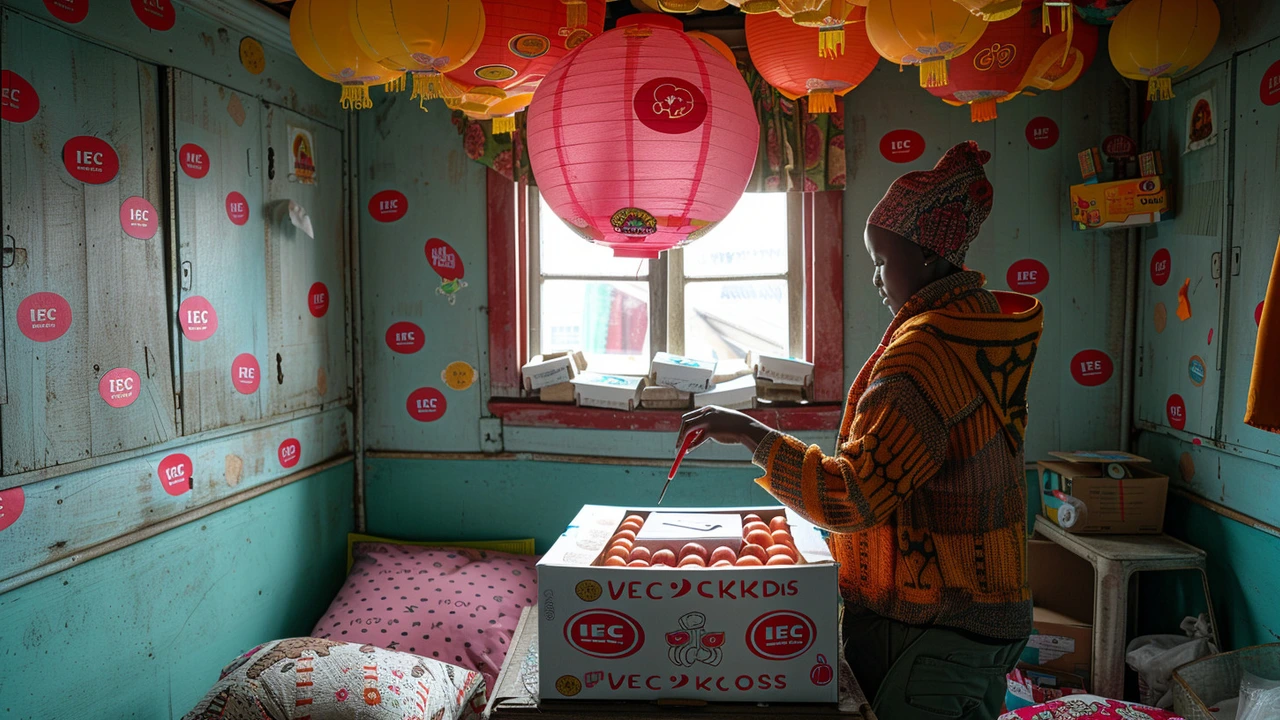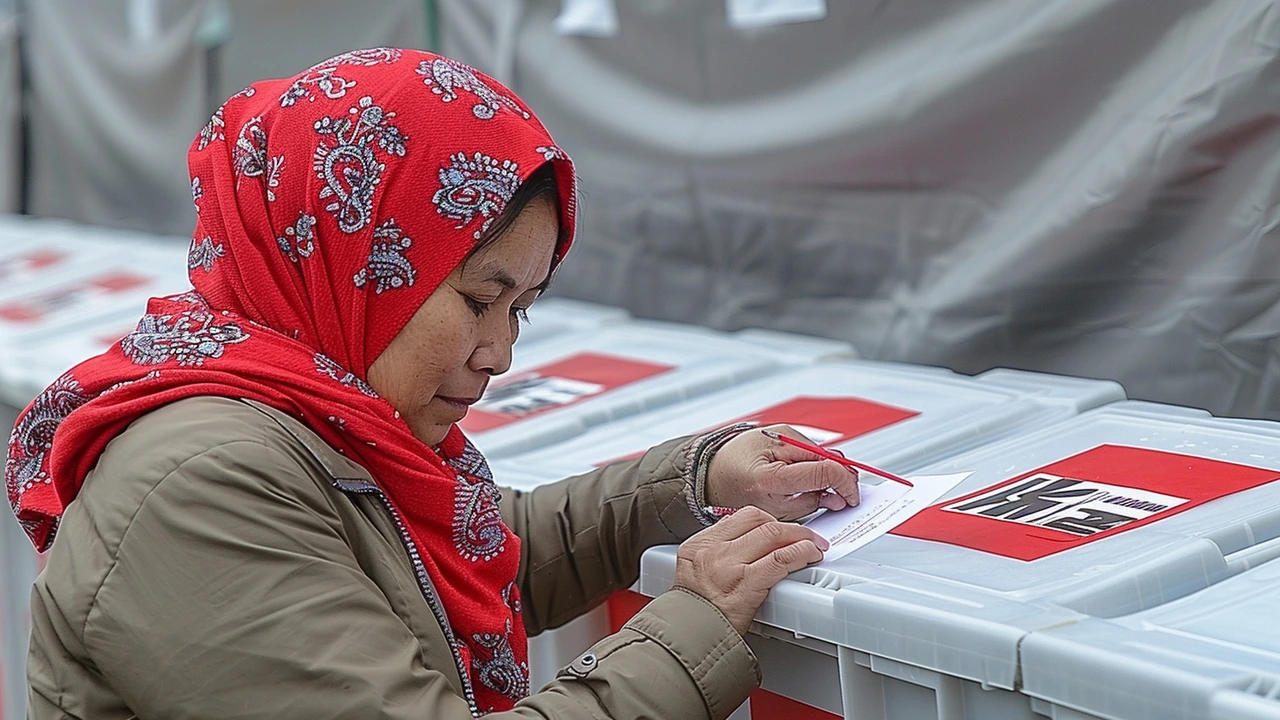The Start of the Special Voting Process in South Africa
The Electoral Commission of South Africa (IEC) encountered several issues on the first day of the special vote, acknowledging various discrepancies and inconsistencies. With around 1.6 million South African citizens having registered for the special vote, which commenced on Monday, the day was meant to be a crucial step in the democratic process. However, things did not go entirely as planned.
Masego Sheburi, the deputy chief electoral officer, addressed the media at the national Results Operations Centre (ROC) and openly discussed the challenges experienced. Sheburi highlighted that the day was marred by a few isolated incidents, but underscored the importance of transparency and commitment to upholding the process's integrity.
The Challenges
Among the reported glitches was a situation where a voting station had no ballots as late as 9 am. Such oversights can significantly undermine voter confidence and potentially affect voter turnout. Another issue was that some voting stations operated using a different system than others, leading to confusion and frustration among voters. Furthermore, there were complaints about the use of a double envelope system, which some found overly complicated and cumbersome.
A particularly concerning incident was the presence of political party supporters campaigning right at the gates of voting stations. This raised serious concerns about the impartiality and fairness of the voting process, as it might unduly influence voters’ decisions.

The Turnout and Logistics
Despite these hurdles, the IEC reported an impressive turnout: an estimated 201,794 visits to voting stations specifically for the special votes. The process involved 22,626 service points spread across the country, reflecting a deliberate attempt to make voting accessible to as many people as possible. With 624,593 voters scheduled to be visited by approximately 62,000 officials over two days, the logistical effort behind this special voting process is monumental.
The IEC also revealed the security and integrity protocols in place to safeguard votes. All votes are securely stored overnight and then transported to voting stations on May 29 for reconciliation and counting. Sheburi emphasized that these measures are crucial to maintaining the integrity of the elections and ensuring that every vote counts.
IEC's Response and Way Forward
The IEC has responded to the incidents promptly. They have committed to addressing the shortcomings and ensuring that such issues do not recur. Staff at the affected voting stations have been briefed, and additional resources have been allocated to remedy the problems encountered on day one.
Despite the hiccups, the commission remains optimistic. It commended the high voter turnout and expressed gratitude towards South Africans for participating in this essential democratic process. The IEC implores all registered voters to continue exercising their democratic rights and to cast their votes on May 29.
The events of the first day underscore the challenges inherent in orchestrating a nationwide voting exercise, but they also highlight the resilience and determination of both the IEC and the voters. The next few days will be critical as the nation watches closely, hoping for a smooth and fair process as South Africa continues to strengthen its democratic institutions.

Security and Integrity Measures
The special voting process in South Africa is designed with multiple layers of security and integrity measures. These measures ensure that the votes cast are securely stored and transported. The ballots will be thoroughly checked and reconciled at the voting stations on the main voting day.
The use of secure storage overnight aims to prevent any tampering or loss. Votes will be stored in tamper-evident containers, assuring the voters that their choices are safe. On May 29, these containers will be transported under strict supervision to their respective voting stations for counting.
The Importance of Voter Turnout
The IEC’s primary concern remains encouraging voter participation. Despite the challenges on the first day, the turnout was notable. This reflects the dedication of South Africans to participate in their democracy. Each vote is a voice; hence, the IEC's efforts in ensuring the process's integrity are crucial.
South Africa’s democratic process has weathered numerous challenges since its inception. Each election cycle strengthens its framework, adapting and improving based on past experiences. The courage of voters to come out and exercise their rights, even in the face of difficulties, is a testament to the nation's democratic resilience.
As voting continues, all eyes will be on the IEC to not just meet, but exceed the expectations of the South African populace. Citizens are encouraged to remain vigilant and to report any irregularities observed. The commission has assured that it will take all necessary measures to address the issues promptly and ensure a smooth voting experience for everyone involved.

Conclusion
In conclusion, the first day of the special vote was a mix of success and challenges. While there were notable glitches, the IEC's transparency in acknowledging these issues and their commitment to resolving them is commendable. The robust voter turnout is a positive indication of the public's engagement and desire to participate in the democratic process.
As the voting process continues, the commission's focus will remain on maintaining the integrity and security of the votes. They urge all South Africans to continue participating and ensuring their voices are heard. With the necessary measures in place, the IEC aims to navigate the challenges and deliver a successful electoral process.

Heena Shafique
May 28, 2024 AT 19:51It is commendable that the IEC chose transparency over concealment when confronting the first-day irregularities.
One might argue that such openness is a hallmark of a maturing democratic institution.
The reported ballot shortage at a station by nine in the morning, while unfortunate, reveals the logistical challenges inherent in a nationwide special vote.
Nonetheless, the persistence of differing voting systems across stations suggests a lack of uniform planning.
In a country that prides itself on electoral integrity, the double‑envelope method appears unnecessarily convoluted.
Observers should note that the presence of party supporters at polling gateways threatens the principle of voter neutrality.
Yet, the IEC’s acknowledgment of these incidents demonstrates a willingness to address shortcomings rather than sweep them under the rug.
From a philosophical standpoint, errors are inevitable when scaling complex processes, but they also provide fertile ground for institutional learning.
The impressive turnout of over two hundred thousand visits, however, underscores a resilient electorate undeterred by procedural hiccups.
It is also noteworthy that over sixty‑two thousand officials were mobilized, reflecting a substantial human resource commitment.
The security protocols involving tamper‑evident containers and supervised transport are prudent measures to safeguard vote integrity.
While these safeguards are reassuring, their efficacy will ultimately be judged during the final counting phase on May 29.
The IEC’s prompt briefing of staff at problematic stations aligns with best practices for rapid remediation.
Future iterations would benefit from a single, standardized voting system to minimize voter confusion.
In sum, the blend of transparency, logistical ambition, and responsive action offers a cautiously optimistic outlook for the remainder of the special voting period.
Patrick Guyver
June 11, 2024 AT 02:23Yo, did anyone else notice how many weird things went down on day one? I mean, stations showing up with no ballots at 9 am? That's gotta be more than just a coincidence, right? Some folks think it's just a slip‑up, but what if there's a deeper plot to mess with the vote? The double envelope thing is like a spy movie gadget-who designed that? And those party folks camping at the gates? Classic intimidation tactics, fam. The whole thing feels like it's been rigged from the start, like they're testing our patience before the real deal. I bet the same people who control the media are pulling the strings behind the scenes. Stay woke, because the truth is out there, just hidden under layers of "official" statements. Definately keep an eye on the next day's logistics, cuz the real drama is just beginning.
Remember, the system only works if we question it!
Jill Jaxx
June 24, 2024 AT 08:56Great points on the turnout, and thanks for highlighting the logistical hurdles.
It's encouraging to see such high engagement despite the setbacks.
Keeping the process transparent will definitely help build trust moving forward.
Jaden Jadoo
July 7, 2024 AT 15:29When a nation decides to vote, it is not merely a bureaucratic exercise but a rite of collective existence.
Each glitch becomes a ripple in the vast pond of democratic consciousness, shaking the surface of legitimacy.
The presence of party banners at polling doors echoes the ancient agora where persuasion was a tangible force.
Yet, the IEC's forthright admission resembles a philosopher acknowledging the limits of his own ontology.
It is in these moments of imperfection that the true character of a polity is revealed.
Will the electorate rise above the noise, or will the murmurs of irregularities drown out the will of the people?
Only the forthcoming count will answer that metaphysical query.
Traci Walther
July 20, 2024 AT 22:02Wow, this is such a wild ride! 😲⚡️ The IEC really dropped the ball with those ballot shortages, huh?
But hey, props for being upfront about it - gotta love that transparency vibe! 🙌
And those party supporters at the gates? Total drama! 🎭
Honestly, this whole situation is like watching a reality TV episode where the plot twists keep coming! 😂
Let’s hope the next day runs smoother, otherwise we’ll need popcorn for the next episode! 🍿
Stay strong, South Africa! 💪🌍
Ricardo Smalley
August 3, 2024 AT 04:34Well, isn’t this a classic case of “the system works…almost.”
It’s almost as if they set out to prove that even the most well‑intentioned electoral bodies can trip over their own shoelaces.
Remember when we thought technology would solve everything? Turns out, you still need a decent supply chain for ballots.
And the double envelope? Talk about over‑engineering – it’s like putting a lock on a bike you never meant to ride.
At least the IEC is trying to be transparent, which is better than the alternative of sweeping issues under the rug.
Let’s see if they can turn this “almost” into an “actually” by the final count.
Sarah Lunn
August 16, 2024 AT 11:07Enough with the excuses, just fix the glitches!
Gary Henderson
August 29, 2024 AT 17:40Hey, I get the frustration, but sometimes these things take time.
Patience might be the best tool we have right now.
Julius Brodkorb
September 12, 2024 AT 00:12Yo, the IEC needs to step up its game – no more ballot blunders!
We’re watching, and we expect better coordination next round.
Juliana Kamya
September 25, 2024 AT 06:45Listen up, folks! The drama of day one was just the opening act.
The real showdown will be when the votes are counted.
If the IEC doesn’t tighten up, the whole democratic narrative could collapse into chaos.
We’re all in this together, so let’s keep the momentum and demand flawless execution.
Erica Hemhauser
October 8, 2024 AT 13:18The IEC’s response is insufficient; they must enforce stricter standards immediately.
Hailey Wengle
October 21, 2024 AT 19:51Honestly, the IEC’s half‑measures are a disgrace to national sovereignty!!!
We cannot allow foreign meddling or internal sabotage to undermine our sacred voting process!!!
Immediate overhaul is non‑negotiable; the integrity of the nation depends on it!!!